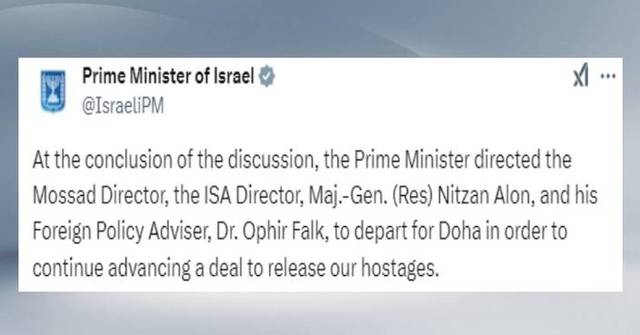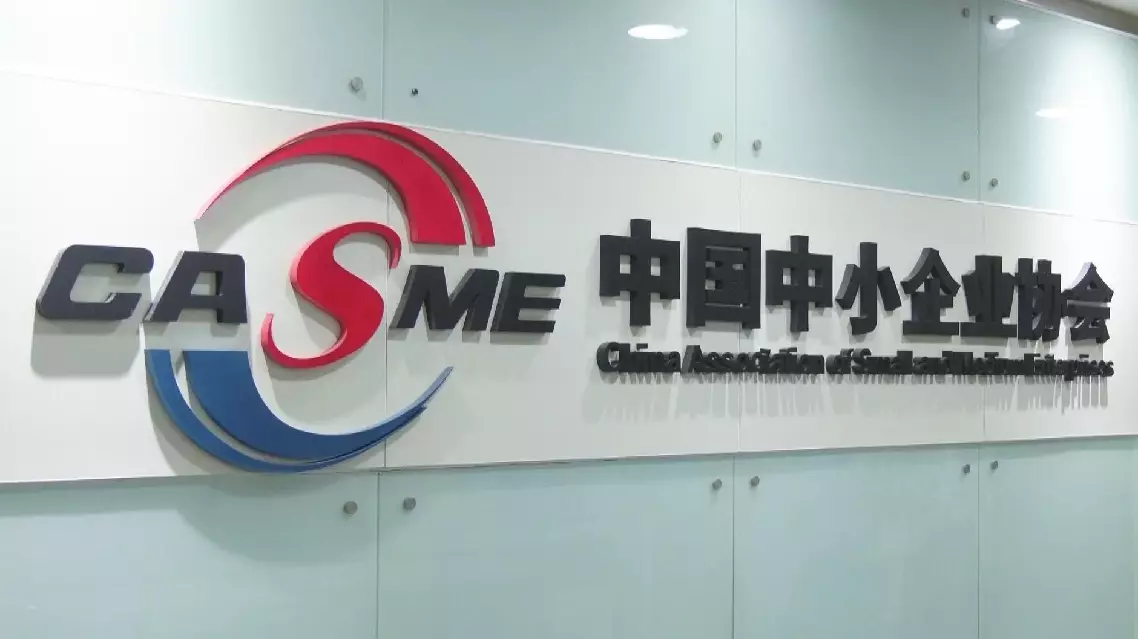Israeli senior delegation to travel to Qatar for hostage deal with Hamas

Israeli Prime Minister Benjamin Netanyahu on Saturday instructed a senior delegation to depart to the Qatari capital Doha to continue advancing a deal with Hamas to release the Israeli hostages held in the Gaza Strip.
A statement from the Prime Minister’s Office said the directive followed a situation assessment Netanyahu held Saturday evening with Defense Minister Israel Katz and U.S. negotiators from “both the outgoing and incoming administrations.”
The Israeli delegation includes David Barnea, head of the Israeli Mossad intelligence agency, and Ronen Bar, chief of the Shin Bet internal security service.
Indirect peace talks between Israel and Hamas have been on and off in the past months, with Qatar, Egypt, and the United States as the main mediators for a truce and a hostage-prisoner swap deal between Israel and Hamas, with the goal of achieving a permanent ceasefire in Gaza.
The latest round of negotiations has gained momentum since the resumption on Jan 3.
Hamas and Israel have narrowed their differences on hostage-prisoner swap and issues including Israeli withdrawal from the Philadelphi Corridor between Egypt and Gaza.
Hamas agreed to release 34 hostages for phase one of the ceasefire agreement, a key demand by Israel. It also agreed to postpone discussions on the Israeli withdrawal from the Philadelphi Corridor for phase two of the deal, which is a permanent ceasefire in Gaza.
Israeli senior delegation to travel to Qatar for hostage deal with Hamas
The Development Index of Small and Medium-Sized Enterprises (SMEs) in China edged up 0.1 points to 89.0 in the fourth quarter of last year, according to data released by China Association of Small and Medium-Sized Enterprises (CASME) on Sunday.
In the fourth quarter, both the comprehensive business index, which indicates the overall conditions for enterprises, and the market index, which reflects the supply and demand for enterprise orders, production sales and inventory, rose by 0.1 points from the previous quarter.
The industrial and social services sectors showed the strongest performance during this period, according to the CASME.
“The industrial and social service sectors saw improvements in production, orders, sales, costs and other related areas. Significantly improved market demand and accelerated economic circulation are enhancing the performance of those industries,” said Ma Bin, executive vice president of the CASME.
The development prospects for SMEs remained stable in the fourth quarter, as the market demand rebounded and corporates’ economic impact and investment intentions remain sustainable, according to the association.
Among the eight major categories of industries of the national economy, five sectors, namely industry, construction, real estate, retail and wholesale, and information transmission and software, experienced a decline in their cost index, which demonstrated alleviated cost pressures on businesses.
The operating rate of SMEs also improved in the fourth quarter. Among them, the proportion of enterprises in full operation reached 39.4 percent, up 6.7 percentage points from the third quarter.
China’s SME development index edges up in Q4
Related
UK extends travel entry scheme to US, Canada, Australia
Image used for representation only. London: The UK's new visa-waiver entry system took effect on Wednesday for passengers from dozens more countries, i







:max_bytes(150000):strip_icc()/011024-nodstrom-sweater-soc-37a58311d3ab40f491e940c9307da2cb.jpg)





